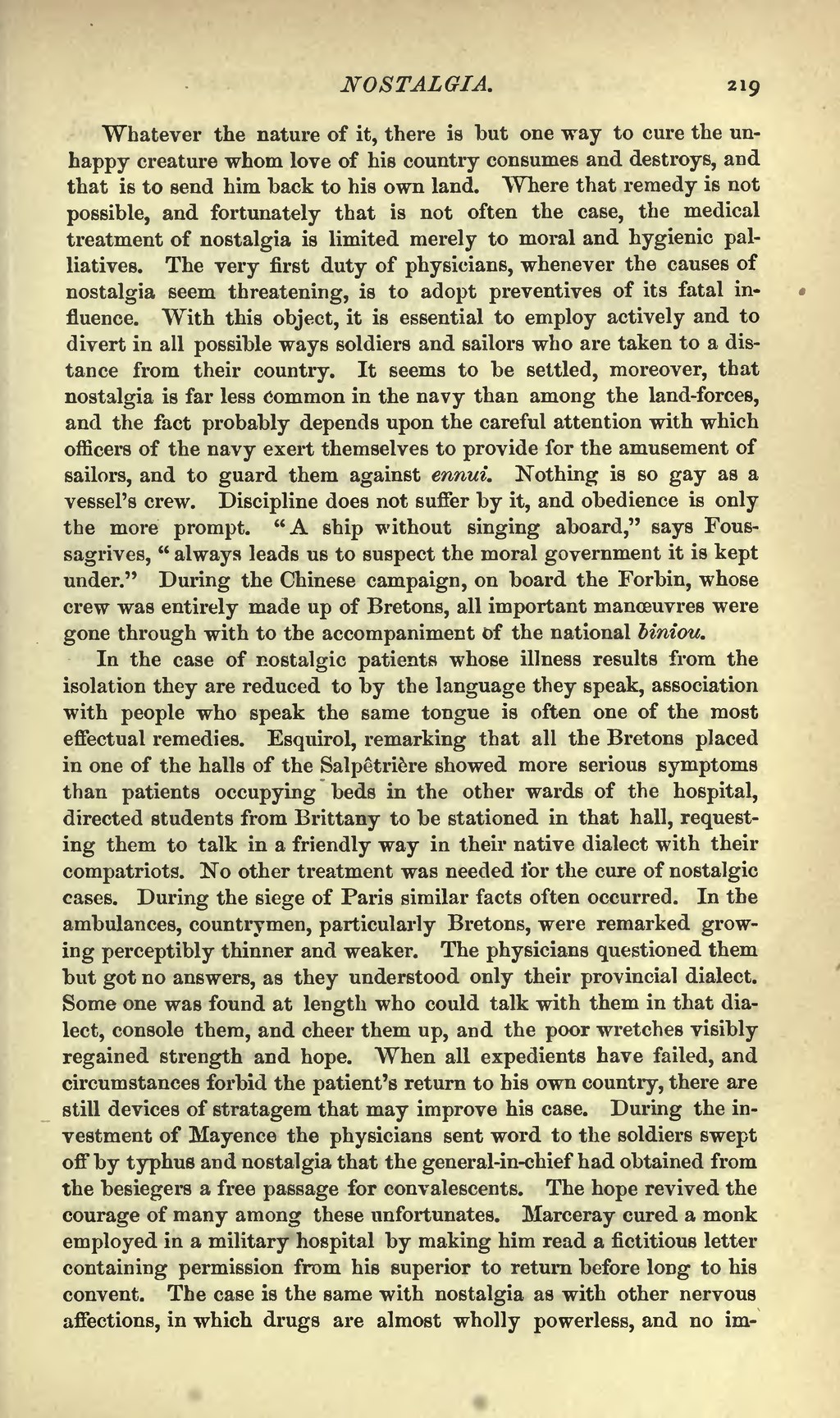Whatever the nature of it, there is but one way to cure the unhappy creature whom love of his country consumes and destroys, and that is to send him back to his own land. Where that remedy is not possible, and fortunately that is not often the case, the medical treatment of nostalgia is limited merely to moral and hygienic palliatives. The very first duty of physicians, whenever the causes of nostalgia seem threatening, is to adopt preventives of its fatal influence. With this object, it is essential to employ actively and to divert in all possible ways soldiers and sailors who are taken to a distance from their country. It seems to be settled, moreover, that nostalgia is far less common in the navy than among the land-forces, and the fact probably depends upon the careful attention with which officers of the navy exert themselves to provide for the amusement of sailors, and to guard them against ennui. Nothing is so gay as a vessel's crew. Discipline does not suffer by it, and obedience is only the more prompt. "A ship without singing aboard," says Foussagrives, "always leads us to suspect the moral government it is kept under." During the Chinese campaign, on board the Forbin, whose crew was entirely made up of Bretons, all important manœuvres were gone through with to the accompaniment of the national biniou.
In the case of nostalgic patients whose illness results from the isolation they are reduced to by the language they speak, association with people who speak the same tongue is often one of the most effectual remedies. Esquirol, remarking that all the Bretons placed in one of the halls of the Salpêtrière showed more serious symptoms than patients occupying beds in the other wards of the hospital, directed students from Brittany to be stationed in that hall, requesting them to talk in a friendly way in their native dialect with their compatriots. No other treatment was needed for the cure of nostalgic cases. During the siege of Paris similar facts often occurred. In the ambulances, countrymen, particularly Bretons, were remarked growing perceptibly thinner and weaker. The physicians questioned them but got no answers, as they understood only their provincial dialect. Some one was found at length who could talk with them in that dialect, console them, and cheer them up, and the poor wretches visibly regained strength and hope. When all expedients have failed, and circumstances forbid the patient's return to his own country, there are still devices of stratagem that may improve his case. During the investment of Mayence the physicians sent word to the soldiers swept off by typhus and nostalgia that the general-in-chief had obtained from the besiegers a free passage for convalescents. The hope revived the courage of many among these unfortunates. Marceray cured a monk employed in a military hospital by making him read a fictitious letter containing permission from his superior to return before long to his convent. The case is the same with nostalgia as with other nervous affections, in which drugs are almost wholly powerless, and no im-

